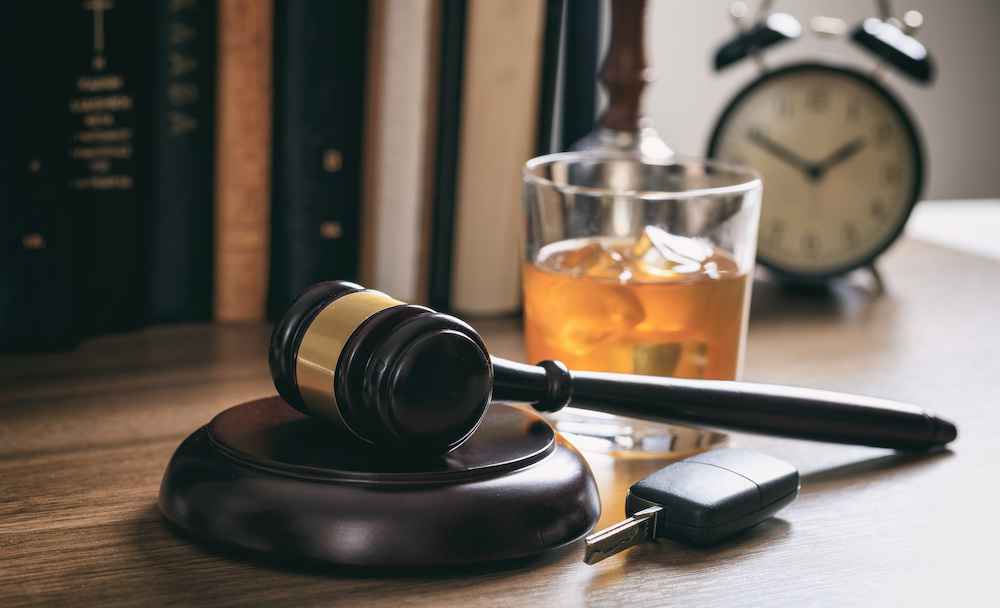If you’ve been charged with driving while intoxicated (DWI), you’ve probably heard the word probation tossed around by attorneys, judges, or even people who’ve faced these charges before. But what exactly does probation mean in the context of a DWI case? It’s far more than just avoiding jail. In fact, for many defendants, probation can be more challenging than a short stint behind bars. Grasping how this type of supervision works is crucial if you want to navigate your legal situation wisely, steer clear of violations, and protect your future.
In this detailed guide, we’ll explore how probation works in DWI cases, examine its conditions, and outline the consequences of noncompliance. We’ll also share real stories of individuals who faced these exact circumstances to show how outcomes can vary depending on choices and compliance.

The Basics: What Does Probation Mean for a DWI Conviction?
In essence, probation offers a way to stay out of jail while remaining under the court’s supervision. Instead of serving your entire sentence behind bars, you remain in your community while being held to strict behavioral and legal standards.
The goal is rehabilitation while allowing you to continue with your job, care for your family, and receive treatment if necessary. But don’t mistake probation for a free pass. The requirements are strict, the oversight constant, and the consequences for missteps severe. A single violation can undo months or years of effort.
States like Texas rely heavily on probation for DWI offenses because it balances public safety with opportunities for rehabilitation. Courts aim to:
Encourage long-term behavioral change
Reduce jail overcrowding
Provide substance abuse treatment
Support families economically
Real-Life Example: Mark’s Story of Redemption
Mark, an accountant in Austin, found himself charged with DWI after registering a 0.12 BAC during a roadside stop. Facing half a year in county jail, he managed to secure probation thanks to his attorney’s negotiations. Over the following year, Mark diligently attended counseling, checked in with his probation officer, completed service hours, and adhered to random alcohol testing. His commitment paid off — he avoided jail and maintained his career trajectory.
Mark’s outcome highlights that probation can indeed serve as a second chance, but only for those who treat it with seriousness.
Typical Terms and Conditions
Although the exact details vary depending on location and individual circumstances, most people on probation for a drunk driving offense encounter some common requirements:
Regular Supervision Meetings
Expect scheduled appointments with a probation officer who monitors your adherence to court orders. They’ll verify your class attendance, test results, and compliance with all terms. These meetings also serve as checkpoints where any concerns or potential issues can be addressed before they escalate into violations.
Alcohol and Drug Screenings
Random drug tests or breathalyzer checks are standard, often without advance notice. Any failed test can trigger sanctions. Staying clean throughout probation is not only crucial for legal compliance but also demonstrates personal responsibility to the court.
Call To Action
Click here to change this text. Lorem ipsum dolor sit amet, consectetur adipiscing elit. Ut elit tellus, luctus nec ullamcorper mattis, pulvinar dapibus leo.
Education Courses
You’ll likely be required to complete educational programs focused on alcohol’s effects and safe driving principles. These classes are designed to help offenders recognize the real dangers of impaired driving and develop safer habits moving forward.
Substance Abuse Counseling
For those with signs of addiction, treatment may include outpatient or inpatient therapy.
Victim Impact Panels
Many jurisdictions require participation in these panels, often led by groups like Mothers Against Drunk Driving (MADD), where offenders hear firsthand accounts from victims of drunk driving.
Community Service
You may be ordered to contribute unpaid service hours to the community.
Restricted Movement
Some people face curfews or limits on traveling beyond city, county, or state borders during supervision.
Ignition Interlock Installation
For higher BAC levels or repeat offenses, you may be required to install a device that prevents vehicle operation if alcohol is detected on your breath.

Total Abstinence from Alcohol
Many courts impose a zero-tolerance rule — no alcohol consumption at all, even during personal time.
How Long Does Probation Last for DWI Offenders?
The length varies depending on whether it’s your first offense, your BAC level, and any aggravating circumstances:
- 6 to 12 months for first-time offenders
- Up to 2 years for second offenses
- Up to 5 years for more serious felony cases
While probation avoids jail, it demands extended periods of disciplined behavior.
Real-Life Story: Jennifer’s Long Road
Jennifer was placed on DWI probation for two years after her second DWI conviction. For 24 months, she had to juggle work, counseling, community service, and constant monitoring. At times it felt overwhelming, but she knew that failing would mean automatic jail time. Jennifer successfully completed the program, and today she uses her experience to mentor others facing DWI probation.
What’s DWI Probation Cost?
Probation isn’t free. Many people are surprised to learn just how costly DWI probation can be. Typical costs include:
- Probation supervision fees ($40-$100 per month)
- Alcohol education class fees
- Substance abuse counseling fees
- Ignition interlock installation and maintenance
- Random drug and alcohol testing fees
- Court costs and fines
It’s not uncommon for DWI probation to cost several thousand dollars over the course of your supervision. Courts expect you to pay these expenses while remaining fully compliant with all other terms.
What’s DWI Probation Violations?
Now let’s talk about the dark side of what’s DWI probation: violations. If you break any probation rule, even unintentionally, your probation officer may report you to the court, triggering severe consequences.
Common DWI probation violations include:
- Failing or missing a drug or alcohol test
- Missing counseling or class sessions
- Driving without a valid license
- Failing to pay required fees
- Getting arrested for any new offense

Even a single violation can lead to a probation revocation hearing where a judge may impose harsher sanctions, extend probation, or send you to jail.
Real-Life Story: Kevin’s Costly Mistake
Kevin, while on DWI probation, missed two alcohol counseling sessions due to work conflicts. He failed to notify his probation officer, who filed a violation report. The judge revoked Kevin’s probation, sentenced him to 90 days in county jail, and extended his license suspension. His story shows how strict and unforgiving DWI probation can be.
What’s DWI Probation Benefits Compared to Jail?
Despite its challenges, DWI probation offers significant benefits when compared to jail time:
- You stay employed and support your family.
- You can continue education or training.
- You receive treatment and support to address addiction.
- You avoid the stigma of incarceration.
For many people, DWI probation becomes a path to recovery and personal growth, provided they fully commit to following the program’s requirements.
Can You Get Early Termination of DWI Probation?
Sometimes. Courts in Texas and some other states allow early termination of DWI probation if you:
- Complete all required programs successfully
- Stay fully compliant
- Pay all financial obligations
However, early termination is never guaranteed and usually requires a formal motion filed by your attorney. Judges want to see clear evidence of rehabilitation before ending DWI probation early.
What’s DWI Probation Look Like for Felony Offenses?
For felony-level DWI cases (often involving multiple prior offenses or serious injury), DWI probation becomes even stricter. Terms may include:
- Long-term intensive outpatient counseling
- House arrest or GPS monitoring
- Longerignition interlock periods
- Extended drug and alcohol testing
Felony DWI probation carries severe penalties for violations, often resulting in long prison sentences if revoked.
Real-Life Story: Paul’s Felony Probation Journey
Paul faced felony DWI charges after his third offense. The court offered him DWI probation as a final chance to avoid prison. For three years, he endured strict supervision, wore a GPS ankle monitor for the first 12 months, attended weekly counseling, and had daily alcohol testing. The program was grueling, but Paul completed it successfully, avoiding a lengthy prison term and rebuilding his life.
Travel Restrictions While on Supervision
One of the most common questions relates to travel. Courts often require prior approval for out-of-state travel or even leaving your home county. Judges want accountability and control over monitoring logistics.
Firearms and Probation: A Bad Mix
Many jurisdictions forbid firearm possession while supervised, particularly if the offense is felony-level or if addiction creates public safety concerns. Always consult legal counsel before attempting to purchase or possess a weapon while under supervision.
What Comes After Successfully Completing Probation?
Once completed, your obligations end, but your conviction remains unless you petition for expungement or record sealing. Many people pursue nondisclosure orders after completion to minimize the long-term impact of the conviction.

Real-Life Example: Lisa Seals Her Record
After finishing her program, Lisa applied for a nondisclosure order. Within months, her record was sealed, allowing her to job hunt without disclosing the offense.
Final Thoughts: What’s DWI Probation? A Second Chance With High Stakes
So, what’s DWI probation? It’s an opportunity — but one that comes with strict rules, heavy responsibilities, and serious consequences for missteps. For many, it offers a second chance to avoid incarceration, rebuild their lives, and address underlying alcohol issues. But to succeed, you must take every condition seriously from day one.
If you’re facing aDWI charge and probation is an option, consult an experienced DUI attorney immediately. The sooner you understand what’s DWI probation, the better prepared you’ll be to navigate the process, comply fully, and protect your future.

